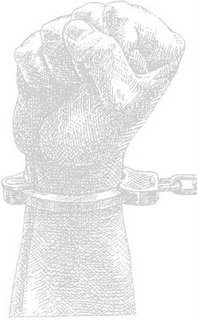Ok this guy misses the whole point of the Fordist arguement of capitalist economics.
Gas Prices Should be Even Higher, Canadian Researcher Claims
“Governments need to make adopting alternative technologies worth it to both the consumer and the producer. One way is by raising, not reducing, fuel taxes.”
The internal combustion/global warming dilemma has been a long time in the making.
For some reason (Tsigaris can’t quite figure why), internal combustion cars were deemed “fittest” back at the turn of the last century in an industrial-Darwinism scenario that continues to influence society and the choices it makes.
What he calls an “historical accident” put society on the internal-combustion super-highway. In the early 1900s, internal combustion, steam and electric technologies used to power automobiles were competing just about equal in the North American market. In fact, electric and steam vehicles were ahead of internal combustion technology at one point in time.
“Imagine what our world would be like if electric cars had won,” dreams Tsigaris. “Imagine what one hundred years of fine-tuning and innovation on electric cars would have produced by now.”
Gee and what would that look like well business already is looking at a new Fordism, hybird and electric car manufacturing. But Fordism none the less
A New Fordism
December 02, 2005
Progressive businesses that downplay whiz-bang marketing ideas and offer real solutions to social ills could start a more meaningful dialogue with consumers. See how it's all shaking out by clicking HERE
Fordist manufacturing, car production, is what grew the capitalist economy of the twentieth century, starting in the U.S. then spreading to Canada, Europe and Japan after WWII. It is now growing the Asian tigers, Korea, Phillipines, etc. and of course China and India.
As for alternatives, well public transit was always the alternative until as the great historical documentary Who Framed Roger Rabbit shows, GM and other car companies bought up the privatized bus companies and wiped them out.
Ford versus GE. GE and other electrical companies were not yet as strong as monopolies to be able to control the market and introduce electric cars. Nor did they have the manufacturing base for car production. Nor the interest. Instead they provided the electric cars for private transit, which was wiped out by the motorization of transit, and expansion of the suburbs and shopping centre culture.
On one hand, complex innovations like supermarkets were made possible by the existence of the automobile, on the other hand their growth (by replacing the nearby corner grocery) made the automobile more of a necessity. The relationship was tightly intertwined. In spite of a growing, more urban population, the number of grocery stores topped out in the late 1930's and declined by 40 percent through the postwar years as the larger supermarket became dominant. Sales per store increased dramatically.
The growth of the suburbs was another environmental change that made the auto more of a necessity. Suburbs first developed after the Civil War when electric street cars expanded the boundaries of many cities. Along the street car line sub-developments or suburbs popped up. Many times the street car owner and land developer were one in the same. Of course, the auto made urban decentralization even easier for the developer and more convenient for the consumer. The increased distance to almost anything and the lack of public transportation which characterized the post-World War II suburb made the automobile much more than a luxury.The Growth of Automotive Transportation

Find blog posts, photos, events and more off-site about:
transit, Ford, Fordism, cars, gas, gas-prices, economists, Canada, Post-Fordism, Roger-Rabbit, GM, private-transit, suburbs, shopping-centres, hybird-cars, electric-cars, steam-cars





